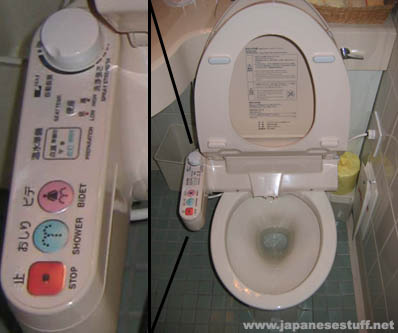The issue of our public amenities needs no introduction. It has been always household word for quite a time now though various campaigns or slogans like "Keep Clean" or "Jagalah Kebersihan Tandas Awam" being implemented, still people are just plain ignorant - waiting for it to resolve itself maybe?
It is reported that today, Bintulu Development Authority (BDA) for example, spent RM30 million yearly to repair and maintain public amenities in Bintulu (BorneoPost). In Kuching, PE Land Sdn Bhd, which manages The Spring, Joanna Ling said management spent an avarage of RM5000/month for 6 toilets in the mall (MBKS). Let's do a simple math shall we. Imagine there's 30 toilets more like the one in The Spring, monthly expenditure for that alone will be RM30,000/month which is equivalent to RM360,000/year. Not much? Remember, it's just toilets maintenance alone. Public amenities can be of other public usage structures like bus stops, markets, public phones, gardens etc.
Interestingly, if we are to total up everything together, the amount of money used just to repair and maintain public amenities alone culminates to around hundreds of million a year! That's a lot of money over petty issue don't they?
I called it petty because in other countries, public amenities are not as big an issue. This is because their authorities know exactly what the word amenity really is. Oxford English Dict. defines amenity as a building or a place that is pleasant, useful and desirable to go. That explains why in developed country like Japan their amenities look like the pictures below.


As you can see, the toilet summarizes the meaning of the word amenity into details. The bus station need not has formal bench for the public to wait because they follow the schedule strictly. In the case of Japan, it's every 15minutes for rural areas and 5-7minutes in big cities. Proper schedule couples with a conducive public-friendly environment amenities, they exploit them to the fullest. Even if the price of such amenities are slightly higher in relative to normal one but in the long run, the authorities need not to spend millions for the repair. Simply because it is up to standard and user friendly!
However, in our case, these kind of amenities - user friendly and pleasant, the way they should be - seem not fit in. Simply because our amenities are just 'amin'+ities. Local word for it will be 'boleh la.. amin jak.. asal siap' kind of mentalities.
The government promised to uplift our public amenities by granting great amount of budget for that purpose in RMK8 but where's my modern toilets or convenient buses as promised? There has been speculation that along the way, the money was somehow leaked by unaccountable c*cksuck*rs. I wanted to believe that those claims are just mumbo-jumbo. However, if it's true, then please stop it right away because we the 'rakyat' deserved our part in truly enjoy our amenities!
Every now and then, vandalism worsen every year. They claimed it was due to pre-matured teenagers etc. but on the other way round, why don't the authority check it first on their side by taking into consideration of the specifications of the amenities? Does it up to standard? Is it pleasant enough to enjoy? I hate to say this but should the authority optimize their budget rather than apple polishing to satisfy oneself, vandalism as we know it shall perish. If not all, I am positive a great number of it shall be minimized.
Let's think of our public amenities as our own belongings. You don't simply vandalize your own house don't you? If you do, then you'll be exempted from a meal or two as punishment. What if in the case of public amenities, if you vandalize, your rights to town are denied for 1-2 years, will you survive?
Above all, the time has come for all of us both the authority and the public to get serious in our public amenities matter. For example, the authority should from now devise a method to ensure that future made amenities agree to standard - or the least is pleasant to the user as the word amenity really means. "AMIN"+ITIES mentality should therefore be revisited. The public most importantly must impart the habit of regarding public amenities as their own home. By this way, they'll made into thinking twice of whether to vandalize or to be scrutinized later.
